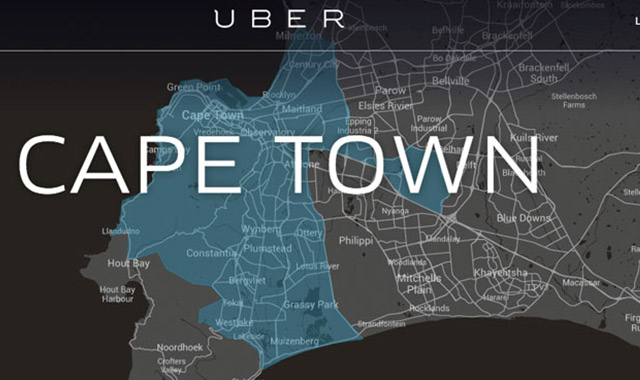
It’s not every day that I feel the need to fight with Martin Wolf. The Financial Times commentator is an eminently respectable analyst and most of the time makes good sense. However, last week he sort of lost the plot.
Wolf has written that technology will do to finance what it has done to media, taxi companies and hotel rooms. The financial version of Twitter, Uber and Airbnb will soon emerge, taking on banks which are — his words — inefficient, costly, unethical, untrustworthy and prone to threaten global economic stability to boot.
At the end of the day, said Wolf, finance is an information business. All information industries have been transformed by the Internet of everything. Ergo, so too will finance.
The vision is enticing, holding forth the promise of a day when money will be democratised and flow without friction through the system. A day when bank scandals no longer make headlines, because banks themselves will be automated platforms owned by their users and not corporations owned by their shareholders.
But this vision is also unrealistic. To understand why, we need to remind ourselves what the financial sector is, and what it is not.
Contrary to Wolf’s assessment, finance is not an information business. Information is important in the industry, but not its core offering. Rather, we can think of finance as a warehousing business. Bank warehouses hold mainly deposits and loans. Fund managers hold assets such as shares and bonds. Insurance companies warehouse assets against the insurance liabilities they underwrite.
It is often the case that financial firms are required to warehouse their products for a very long time. They need to ensure that they do so properly, and that their customers are aware of the risks the products entail. If the job is done correctly — and clearly that is not always the case — then financial firms collectively support economic activity by transforming savings into capital (and loans), providing liquidity to the market and helping households and firms mitigate their financial risks.
In Australia, for example, this is huge business. That country’s big four banks together hold more than A$2 trillion of financial products on their balance sheets. There is more than $2 trillion of assets in the superannuation system (some of which is also held by banks). The three largest general insurers in Australia hold nearly $200bn on their balance sheets, and the list goes on.
So much more than financial products
Around this core set of financial products, financial companies offer a whole lot of services. These include the things we use every day such as PayPass, international money transfers, account verification, share trading and automatic billing. They also include activities we don’t like to think about so much, such as disputed credit card transactions, property damage pay-outs, security against hacking and a 30-year guarantee of a pay-out upon death.
When fintech startups first entered the system, they focused on offering new financial services rather than products. Examples include companies like PayPal — no longer thought of as a start-up — which introduced a better, cheaper and more convenient payment platform to the US that allowed individuals and businesses to transfer payments to each other nearly anonymously.
PayPal still relies, however, on the credit cards and bank accounts of its customers. That very traditional financial system — guaranteed by highly regulated bank balance sheets — provides confidence that the buyer has an account with funds that can be received and then held by the seller’s account.
More recent examples of new fintech entrants in Australia include the many firms deploying blockchain technology in a distributed ledger system (CoinTree, CoinLoft) or using big data sets and algorithms to shorten loan approval times from days or weeks to less than 10 minutes (Kikka, Nimble). These are welcome innovations in the financial ecosystem, and are disrupting the way in which banks engage and interact with their customers in terms of the services they provide.
But at either end of this transaction, more often than not, there will be a bank sitting with a balance sheet to warehouse the payment or the loan in a way that the customer can be certain that their money will be safe over time.

Consider this against the model of Uber or Airbnb. These are outstandingly successful companies in the “sharing” economy, where individuals with something small and personal to sell are able to make that offer via a safe and secure platform and where customers can feel confident that the product will meet their requirements. Uber and Airbnb have successfully disrupted the old warehousing businesses model of taxi companies and hotels.
So, why couldn’t the same be true in finance — a sharing platform that renders the financial warehouse obsolete? The main reason is in the nature of the product itself. First, financial products — money — can lose value if stored for a long period of time. That can be risky, particularly for people with low levels of financial skills or literacy. Booking a single Uber ride where the transaction will be completed in 30 minutes is low risk, even if the driver is bad or doesn’t turn up. Paying US$1 000 now to book that specific driver for 20 rides scheduled to take place in 2025 is a different kettle of fish. Will the $1 000 still buy the same number of rides and will the driver accept the currency on offer?
Easier to steal than a hotel room
Second, money is fungible. It is much easier to steal than, say, a hotel room. To reduce the risk of fraud and misappropriation of funds, financial regulators impose huge requirements on financial firms to verify that transactions are legitimate. This creates friction in our financial system — for example, it slows down the pace at which we might otherwise undertake financial transactions. Humans have been experimenting with the “right” level of friction in the financial system ever since the time of the Medicis, and arguably we have yet get the balance right. One thing we know, however, is that a frictionless financial system would carry huge risks. In fact, it would be downright scary.
The closest concept to a frictionless, shared, Uber-like company in the world of banking is peer-to-peer and crowdfunding lending platforms. This is a credit-sharing model, where individual lenders can make their household savings available and attract higher rates of return on a platform that pools their funds into loans for people who are willing to borrow off that platform. One benefit of borrowing off a platform can be the potential for lower interest rates based upon a wider set of information (such as mobile phone payment history for example) that may allow borrowers to access more favourable interest rates.
This is a welcome development, albeit with limitations. There are commercial banks in the US and UK that now utilise peer-to-peer providers to find customers in much the same way that professional real estate firms have invaded the online shared property rental market. More worryingly, predatory lending and usurious interest rates are not the sole domain of established players, and commentators are suggesting that some elements of the PtoP market in the US may be starting to resemble the subprime market of the noughties.
The potential emergence of high-risk lending in the PtoP space — and, for that matter, evidence of unsavoury actors exploiting the anonymity of digital currency — is a reminder as to why the financial sector remains one of the most heavily regulated in the world.
Rather than “replacing” banks or other traditional financial firms, fintech start-ups seem to be developing a symbiotic relationship, utilising the balance sheets of established players while disrupting and in many ways improving the customer interface — the ways in which people and businesses engage with their money.
Last week, the headline from Australian bank ANZ that it was poaching Maile Carnegie from Google to run its digital banking service captured the zeitgeist. Are banks now tech companies? The answer is no, not really. But they are looking to technology to better serve their customers. And that is something we can all agree is a good thing.![]()
- Amy Auster is executive director, Australian Centre for Financial Studies
- This article was originally published on The Conversation

